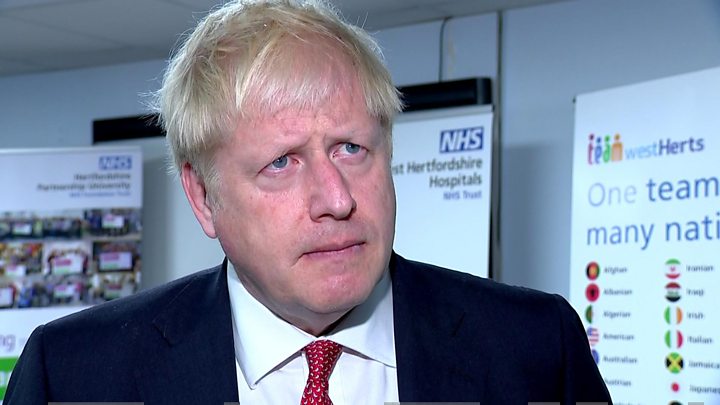Harry Dunn crash: What is diplomatic immunity?
The UK government wants the US to waive diplomatic immunity given to the wife of a diplomat involved in a fatal…

 Image copyright Family Photo
Image copyright Family Photo The UK government has urged the United States to reconsider giving diplomatic immunity to Anne Sacoolas, the suspect in a crash that caused the death of motorcyclist Harry Dunn.
So what is diplomatic immunity and who has it?
About 23,000 individuals in the UK have diplomatic immunity, a status reserved for foreign diplomats, as long as they don’t have British citizenship.
Although the concept dates back centuries, it is granted by the 1961 Vienna Convention and means that, in theory, diplomats and their families cannot be arrested or prosecuted for any crime or civil case.
Ms Sacoolas has this legal protection because she is the wife of an American diplomat working in the UK issued with diplomatic immunity.
The convention also states those entitled to immunity are expected to obey the law.
The rules apply to diplomatic buildings such as embassies. Police cannot enter these premises without an invitation from the ambassador or head of mission.
It’s why Julian Assange was able to stay in the Ecuadorian embassy for so long – until the Ecuadorian ambassador gave permission for UK authorities to enter.
Can diplomats lose immunity?
Yes. Where crimes are committed, the Foreign Office can ask a foreign government to waive immunity where they feel it is appropriate.
The parents of Harry Dunn want US President Donald Trump to waive Ms Sacoolas’s diplomatic immunity.

Media playback is unsupported on your device
The US State Department said diplomatic immunity was “rarely waived”.
A diplomat cannot waive his or her immunity, only the foreign state has that authority.
Who else receives immunity?
Diplomatic immunity is by no means restricted to those named on the Diplomatic List from the Foreign and Commonwealth Office.
Drivers, cooks and other support staff whose names do not appear but have been accredited to Britain (“the receiving state”) have the same diplomatic status and immunity as those listed.
The level of immunity varies and depends on rank and “ranges from immunity from criminal and civil and administrative jurisdiction to immunity for official acts only”, according to the Crown Prosecution Service.
Equally, there are a number of foreign nationals in Britain attached to international organisations who have the same status and protection.
The heads of UN agencies, for example, generally have the same level of immunity as diplomats. The major difference being UN heads are immune from prosecution in all countries.
When has it been applied?
Diplomatic immunity helps diplomats do their job and the host country is required to “take all appropriate steps to prevent any attack on his person, freedom or dignity”, which in practice could mean harassment from the police and security services.
In 2017, there were 12 serious offences allegedly committed by people entitled to diplomatic protection in the UK.
Five of these were driving related but other crimes included sexual assault, blackmail and possession of a firearm.
A high-profile case involved PC Yvonne Fletcher, a London Metropolitan Police officer who died policing a demonstration outside the Libyan embassy in London in 1984. She was hit by gunfire from a first-floor embassy window.
After an 11-day siege of the building, the UK government arranged for the deportation of a number of Libyan diplomats.
But diplomatic immunity meant the police could not search the bags of the diplomats and staff being deported.
In 2018, tennis player Boris Becker claimed diplomatic immunity against an attempt to sue him.
The Wimbledon winner said he was protected from the law because of his appointment by the Central African Republic as a sport and culture attache to the EU earlier that year.
Mr Becker later dropped the claim.
An Indian and a Kazakh businessman, as well as a former adviser to the late Libyan leader Col Muammar Gaddafi, have all at various times tried to avoid legal action in Europe by citing diplomatic immunity from the CAR.
An example of a country waiving diplomatic immunity occurred in 1997, after a Georgian diplomat killed an American teenager in a car accident.
Georgia removed the diplomat’s immunity and he was convicted of involuntary manslaughter, according to a report by the Congressional Research Service.
Diplomats have also avoided paying the London Congestion Charge.
As of 2017, diplomats owed almost £100m in charges, according to the Foreign Office.




